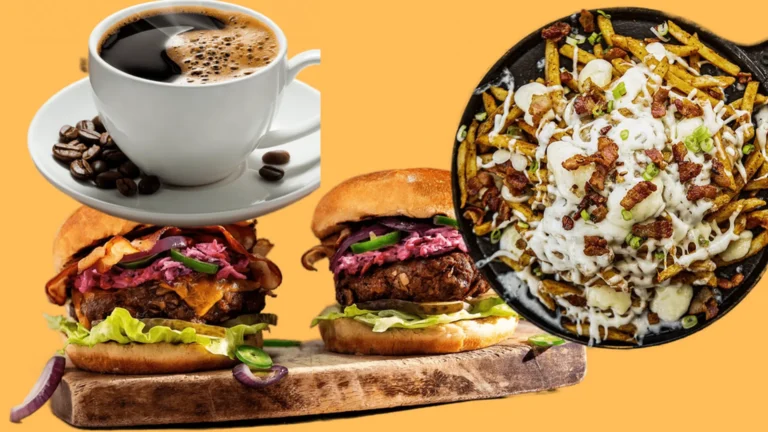When politics and food collide, the results can be strange, dramatic, and surprisingly funny. From global conflicts to local spats, some foods were renamed out of spite, political vengeance, or pure propaganda. Once you see the history behind these 10 dishes, you might never eat the same way again.
1. Kiwi: From Chinese Gooseberry to a Cold War Hero
The bright green, tangy fruit we now know as Kiwi was originally called Chinese Gooseberry. Introduced to New Zealand in 1904, it was exported globally starting in 1959.
But during the Cold War, Americans weren’t thrilled about the “Chinese” connection. New Zealanders toyed with names like “melonettes” (a costly misstep), before settling on Kiwi—a rebranding that stuck and gave the world a fruit icon.
2. French Fries → Freedom Fries
In 2003, France refused to support America’s invasion of Iraq. Anti-French sentiments boiled over, reaching the iconic French Fries.
- North Carolina restaurants renamed them Freedom Fries.
- U.S. Congress even debated the new label in the Capitol cafeteria.
Thankfully, French Fries survived politically unscathed, and the temporary rebellion became a quirky footnote in culinary history.
3. Danish Pastry → Roses of Muhammad
After a Danish newspaper published images of the Prophet Muhammad (forbidden in Islam), Iran retaliated by renaming Danish pastries “Roses of Muhammad” in 2006.
- The move was an attempt to erase the cultural association with Denmark.
- Though mostly symbolic, it shows how food can become a battlefield for ideology.
4. Chicken Kiev → Chicken Kyiv
This classic dish of pounded chicken rolled with herb butter has a recent political twist.
- The city’s original Russian spelling, Kiev, became controversial after the 2022 Ukraine war.
- Supporters of Ukraine now insist on Chicken Kyiv, honoring the Ukrainian spelling and national pride.
5. Turkish Coffee → Greek Coffee
- Thick, strong, and aromatic, Turkish Coffee became Greek Coffee in Greece after Turkey’s 1974 invasion of Cyprus.
- The name change reflects long-standing political tensions and national pride.
6. German Sauerkraut → Liberty Cabbage
During World War I, anti-German sentiment in the U.S. ran high.
- Sauerkraut, literally “sour cabbage,” became Liberty Cabbage.
- Renaming it allowed Americans to enjoy the dish without feeling disloyal.
7. Americano Coffee → Russiano Coffee
In 2014, some Russian cafés jokingly renamed Americano Coffee to Russiano Coffee.
- A lighthearted political jab during tense relations with the U.S. over Ukraine.
- Menu humor meets politics—the drink stayed popular under its new name in some spots.
8. Berliner Donuts → Kitchener Buns
During World War I, anti-German sentiment hit pastries too.
- Berliners, a German doughnut, were renamed Kitchener Buns in Australia and Canada.
- The new name honored Lord Kitchener, a British war hero, completely stripping the pastry of its German roots.
9. Hamburgers → Liberty Sandwiches
Another World War I casualty:
- Hamburgers, named after Hamburg, Germany, were rebranded Liberty Sandwiches in the U.S.
- A patriotic culinary move that highlights how even comfort food isn’t immune to global politics.
10. Poutine → “Fry Cheese Gravy”
In 2022, a Quebec restaurant renamed Poutine after noticing its pronunciation closely resembled Vladimir Putin.
- In French, Poutine sounds like “puh-teen,” eerily similar to Putin.
- To avoid controversy, the dish was temporarily labeled Fry Cheese Gravy, demonstrating how even fast food can get tangled in geopolitics.
The Takeaway:
Food isn’t just sustenance—it’s culture, identity, and sometimes political chess. From Kiwi to Poutine, renaming dishes has often been a mix of defiance, nationalism, and pure spite. Next time you order your favorite snack, remember: there’s probably a wild story behind its name.
💬 What’s your favorite politically renamed food? Share in the comments below and keep the conversation going!





